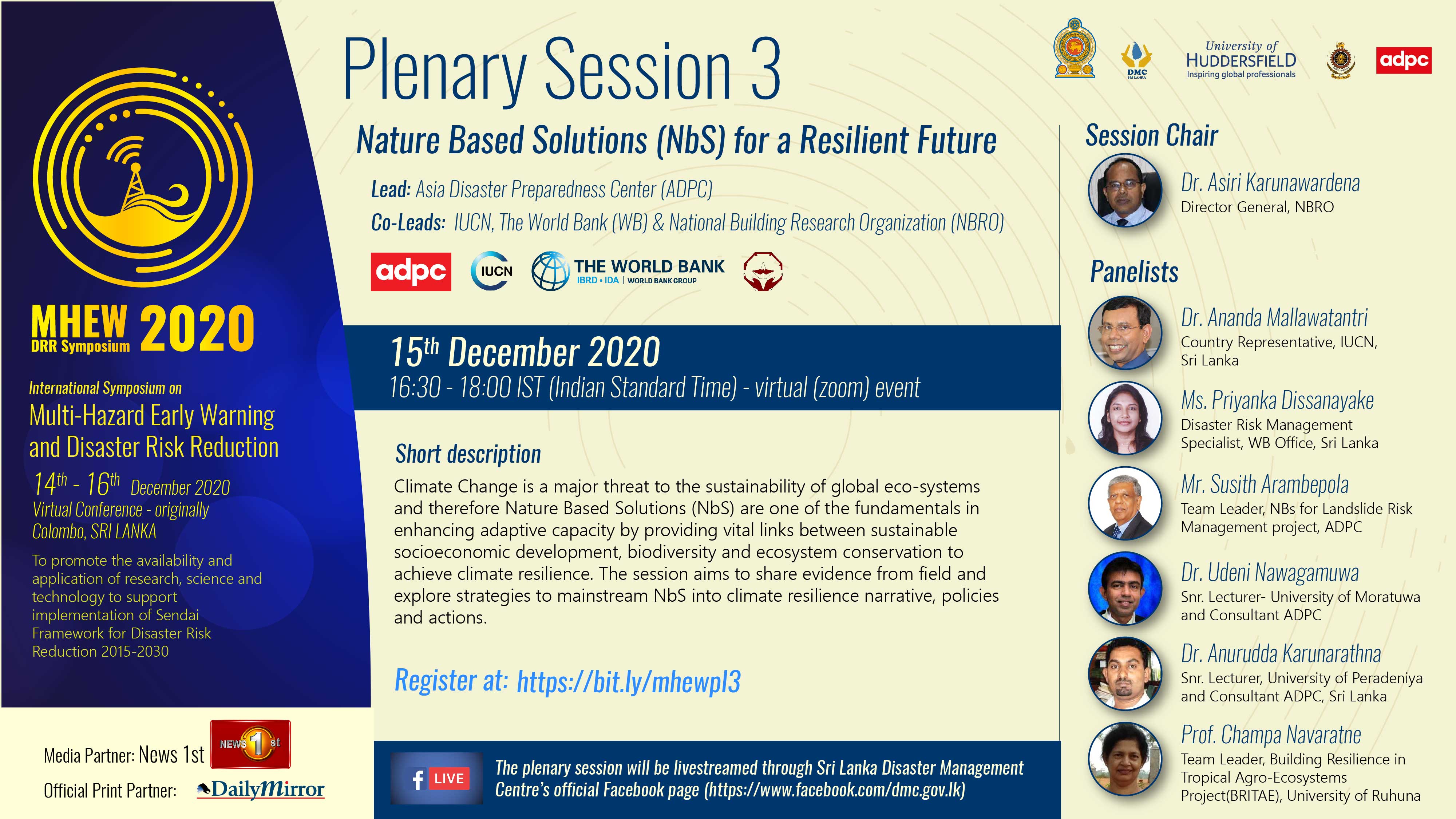14th to 16th December 2020 - Online symposium
| Time (min) | Agenda item | Name / Lead |
|---|---|---|
| 00 – 05 | Welcome to participants, introduction of speakers / panelists and introduction of the session and structure of the event | Chair - Dr. Asiri Karunawardena Director General, NBRO, Sri Lanka |
| 05 – 20 | Keynote Speech Evidence sharing on NBs for eco-system based adaptation, eco-system based DRR, regional and national perspective | Dr. Ananda Mallawatantri, Country Representative, IUCN, Sri Lanka |
| 20 – 30 | Speaker 2 Relating evidences of NBs for flood and landslide risk management global and regional perspective | Ms. Priyanka Dissanayake, Disaster Risk Management Specialist, WB Office, Sri Lanka |
| 30 – 40 | Speaker 3 Relating effectiveness of NbS for ecosystem based DRR and CCA in terms of landslide risk management in Sri Lanka | Mr. Susith Arambepola Team Leader, NbS for Landslide Risk Management Project, ADPC,Sri Lanka |
| 40 – 50 | Speaker 4 Highlighting the process and challenges in application of NbS for mitigating landslide risk at different scalesopportunities & challenges | Dr. Udeni NawagamuwaSnr. Lecturer University of Moratuwa and Consultant ADPC, Sri Lanka |
| 50 – 60 | Speaker 5 Suggesting an approach for plant selection in utilization in NbS for mitigating the landslide risk in Sri Lanka | Dr. Anurudda Karunarathna Snr. Lecturer, University of Peradeniya and Consultant ADPC, Sri Lanka |
| 60 – 70 | Speaker 6 Highlighting capacity building needs and associated research for promoting eco-system-based resilience | Prof. Champa Navaratne Team Leader, Building Resilience in Tropical Agro-Ecosystems Project (BRITAE), University of Ruhuna, Sri Lanka |
| 70 – 85 | Q&A session | All |
| 85 – 90 | Key messages & closure of the session | Chair |
Copyright © All rights reserved | This template is made by Colorlib
